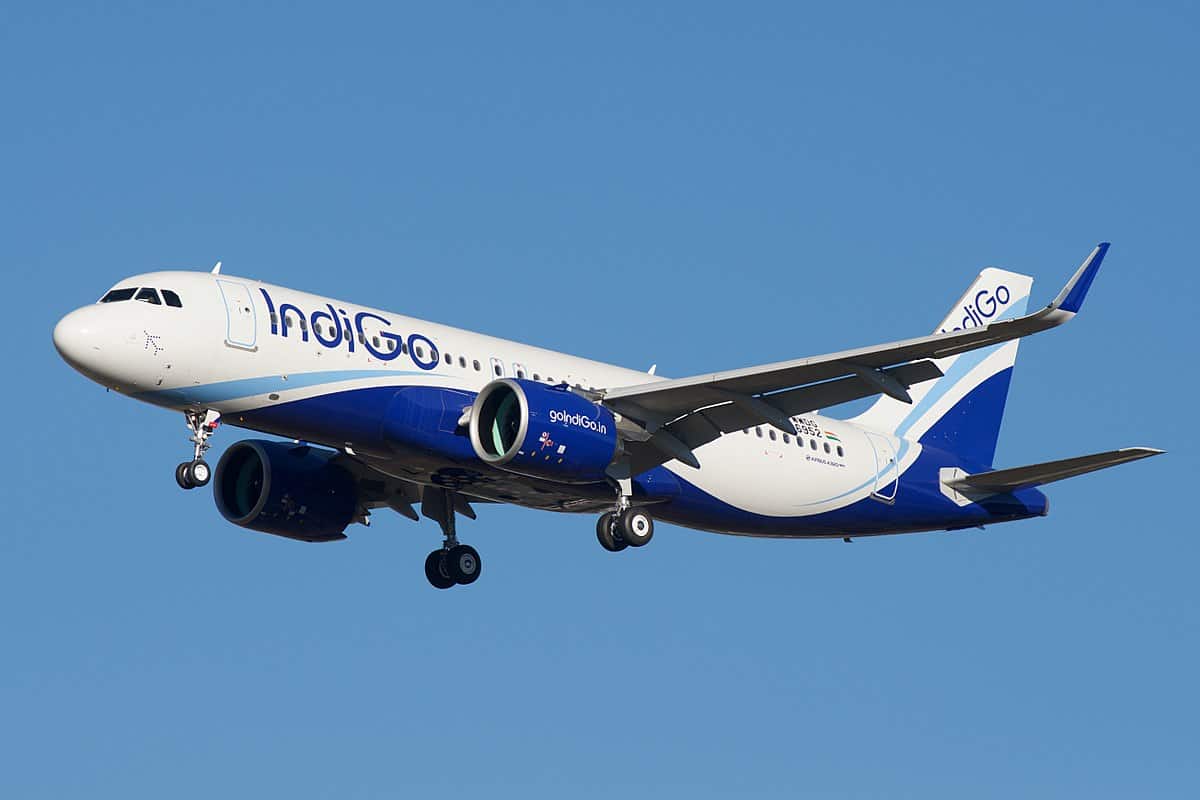
Delhi: InterGlobe Aviation, the parent of the country’s largest airline IndiGo, on Friday reported a widening loss to Rs 1,583.34 crore for the September quarter due to higher fuel costs and foreign exchange loss.
The airline, also the world’s seventh largest in terms of daily departures, reported a loss of Rs 381.8 crore, excluding the foreign exchange loss of Rs 1,201.5 crore, in the latest quarter under review.
With increasing competition and Air India being revived under the ownership of Tatas, IndiGo is also looking at expanding its international operations.
There is a strong recovery in all segments and IndiGo is expected to be operationally profitable in the third quarter but there are supply chain issues that have resulted in the grounding of planes, according to senior executives at the airline.
Currently, the airline operates more than 1,600 daily flights and has a domestic market share of more than 57 percent.
In the September quarter of last year, the airline had a loss of Rs 1,435.66 crore.
However, the total income of the company rose to Rs 12,852.29 crore in the second quarter of the current fiscal from Rs 5,798.73 crore in the same period a year ago, according to a release.
In the latest September quarter, total expenses jumped to Rs 14,435.57 crore. Fuel costs in the latest September quarter surged to Rs 6,257.9 crore from Rs 1,989.4 crore in the year-ago period.
IndiGo CEO Pieter Elbers said that the September quarter was the second consecutive quarter wherein it operated at higher than pre-Covid capacity.
“In spite of a seasonally weak quarter, we witnessed relatively good yields with strong demand across the network. However, fuel prices and exchange rates have adversely impacted our financial performance.
“We are on a steady path to recovery, benefiting from enormous opportunity both in domestic and international markets. With an industry challenged by global supply chain disruptions, we are working on various countermeasures to accommodate this strong demand,” he said.
In the September quarter, the airline said its capacity increased by 75 per cent and the passenger numbers rose by 75.9 per cent to 1.97 crore.
Yield improved by 21 per cent to Rs 5.07 while the load factor rose to 79.2 per cent, as per the release.
During the earnings call with analysts, Elbers said supply chain disruption in aircraft manufacturing and subsequent shortage of spare engines worldwide have impacted the airline’s operations due to the grounding of aircraft.
“The challenges are forcing us to look at different ways and means in order to make sure that we have the capacity to operate… One of the things we are doing is extending some of the leases, postponing some of the re-deliveries and a possible wet lease operation… we are in the process of finalising that,” he said.
He listed out On-Time Performance (OTP), affordable fares, courteous and hassle-free service and unparalleled network coverage as among the priorities. It will also focus on developing internal structures, people and processes in line with the size of operations, customer base and future ambitions.
“We will build on our strong foundation with more international aspirations,” he said.
IndiGo CFO Gaurav M Negi said that while fuel and forex continue to pose headwinds, “we are reasonably confident that we will return to operational profitability in the third quarter”.
The airline’s Chief Strategy & Revenue Officer Sanjay Kumar said there is a strong recovery from all segments, including traction in international tourist arrivals and strong corporate demand.
“For the quarter, our passenger ticket revenues were Rs 1,11,104 million, an increase of 135.6 per cent and ancillary revenues were Rs 12,872 million, an increase of 57.4 per cent compared to the same period last year,” the release said.
To a query about ATF prices, Negi said that now there is a lot more transparency coming in the pricing mechanism.
“The Ministry of Petroleum and the Ministry of Oil and Natural Gas have sat together along with airlines and oil marketing companies. The way the pricing was done is undergoing a change as we speak. It started to happen on October 1.
“There is a lot more transparency coming in about how the prices of ATF are getting determined in India vis-a-vis Brent. Brent is not the right reference point. The new reference point is linked to the Mean of Platts Arab Gulf (MoPAG) pricing mechanism,” he said.
The CEO noted that operating more than 1,600 daily flights require “enormous operational discipline and innovation”.
While noting that IndiGo’s fleet utilisation is very efficient, he said the Indian market is recovering faster recently, and there is also robust demand.
“IndiGo today, with daily departures of more than 1,600 flights, is now the world’s 7th largest airline measured in terms of departures. That is an important element to take into account on how we organise our resources and structure the organisation…,” Elbers noted.
The airline’s fleet stood at 279 aircraft, including 26 A320 CEOs, 149 A320 NEOs, 68 A321 NEOs, 35 ATRs and 1 A321 freighter at the end of September.
Negi said one freighter is expected to be added in December and two more in early next financial year.
As of September 30, the airline had a total cash balance of Rs 19,660.6 crore, comprising Rs 8,244.2 crore of free cash and Rs 11,416.4 crore of restricted cash.
Shares of IndiGo closed flat at Rs 1,797.60 apiece on BSE



